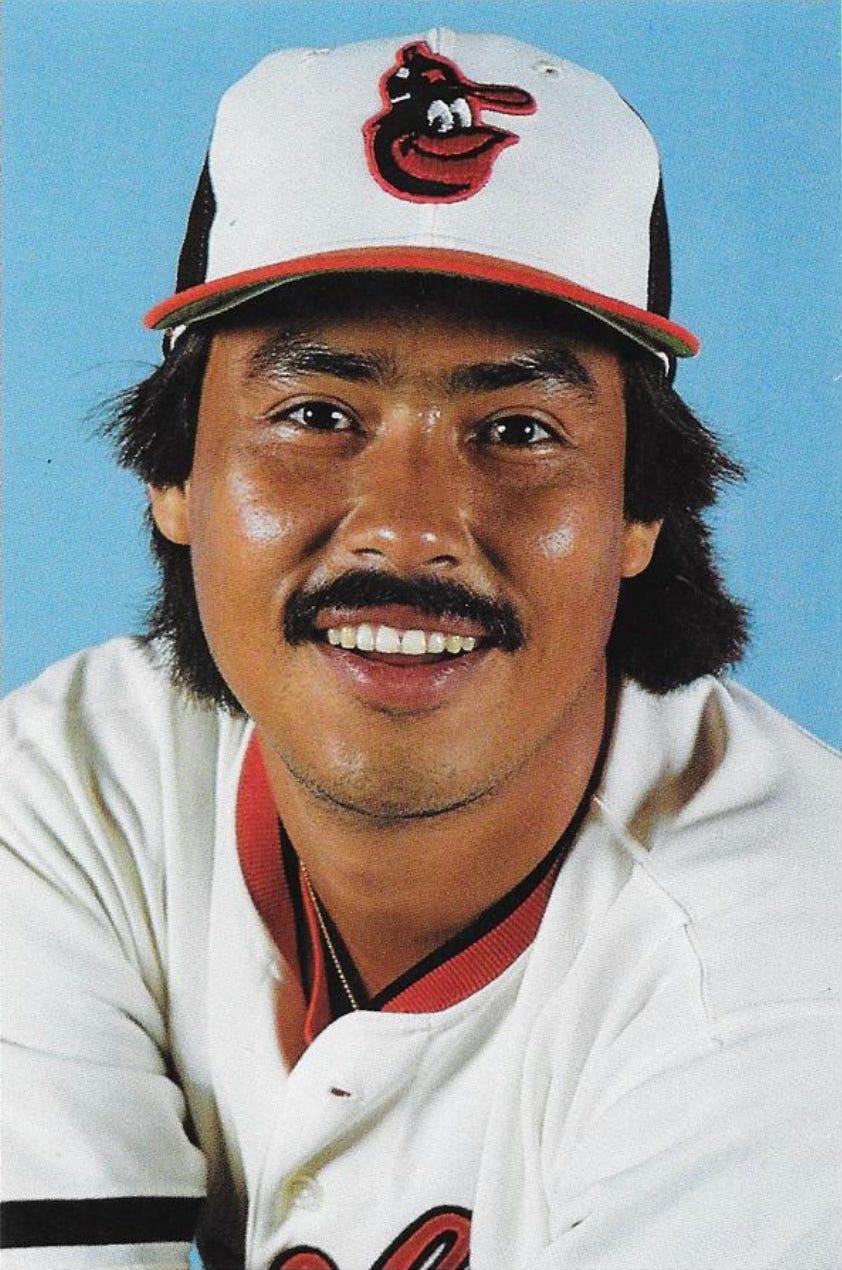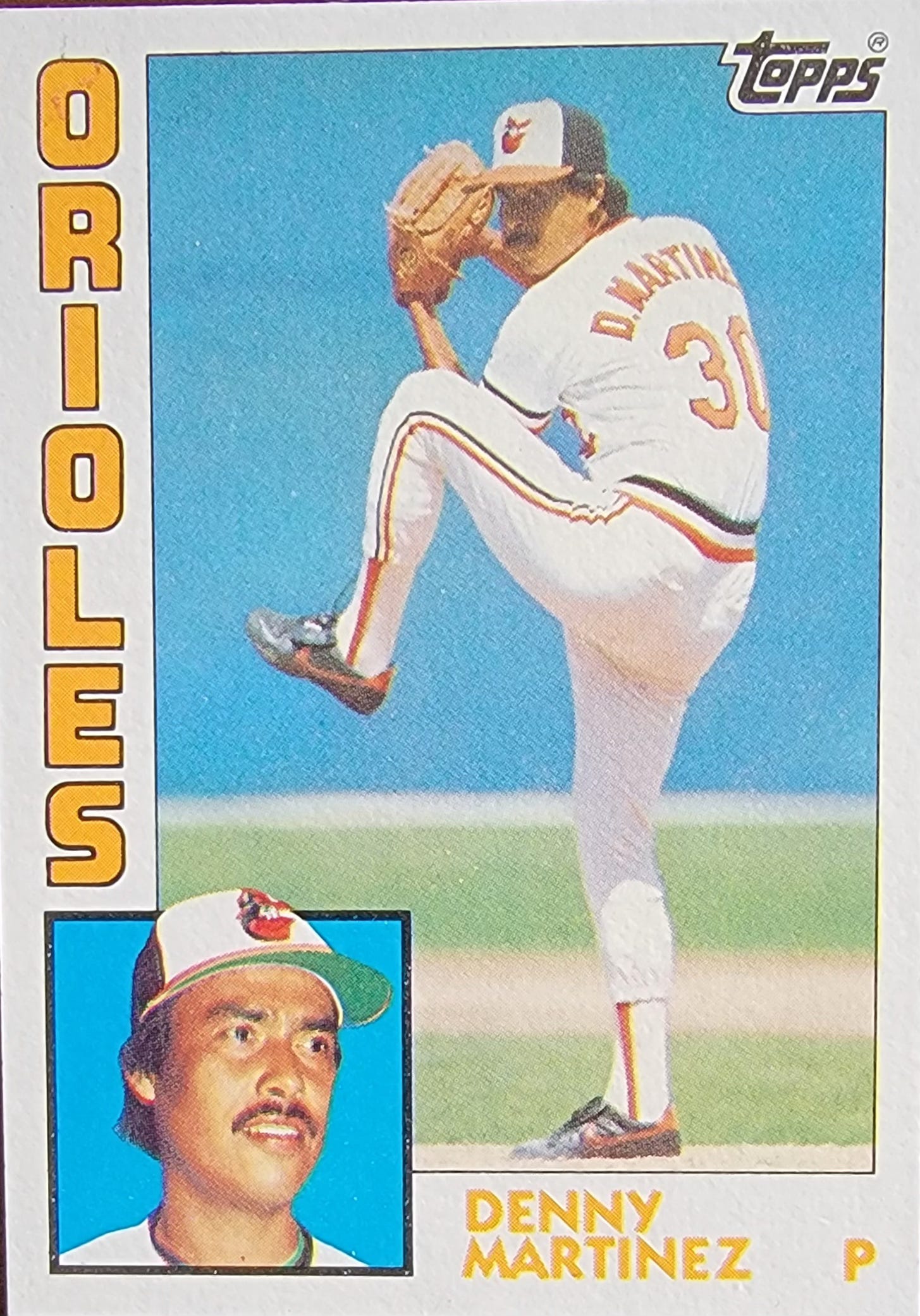The Bird Tapes Interview: Dennis Martinez
He weighed 135 pounds when he signed at an amateur tournament in Central America. He went on to win 245 games in the majors. His pride in his “one to a million” journey is evident in our conversation.
I’m slotting Dennis Martinez high in my Bird Tapes order and among heavyweights, between Frank Robinson last week and (spoiler) Boog Powell next week, for the simple reason that his story deserves it.
“I was a one to a million kid to make it to the major leagues,” Martinez told me during our 1999 interview posted below in two parts.
I was not about to dispute those odds then, and I agree with him even more now.
When we spoke over lunch at a restaurant in Miami, he was 45 years old, a quarter-century removed from his signing with the Orioles as an undrafted and utterly unknown 135-pound prospect from Nicaragua, a country with almost no history of sending players to the major leagues. He was indeed the longest of shots.
But with talent, determination and sheer doggedness, he made it to the majors and pitched for 23 years, leaving a legacy matched by few who’ve ever gripped a ball:
His 245 career wins are more than many pitchers in the Hall of Fame, including Juan Marichal, Whitey Ford, Pedro Martinez and John Smoltz. Martinez retired as the winningest Latin-born pitcher in major league history and held that record until Bartolo Colon passed him in 2018.
He became the first Latin-born pitcher and just the 13th from anywhere to toss a perfect game in the majors. His came in 1991 when he was pitching for the Montreal Expos against the Los Angeles Dodgers.
He is one of just 10 pitchers in history to win at least 100 games in both the American League and National League. That list also includes Cy Young, Nolan Ryan, Ferguson Jenkins, Gaylord Perry, Randy Johnson and Pedro Martinez. Impressive company.
Again, quite simply, while he only pitched for the Orioles for a decade (winning 108 games) before fashioning a long and superb second act elsewhere, he easily ranks among the most accomplished pitchers ever signed by the Orioles.
All of which makes his professional origin story all the more amazing.
I’m going to let Ray Poitevint, the scout who signed him in 1973, explain what happened. This quote is from my interview with Poitevint, one of the team’s core scouts of the 1970s, for my book on the history of the team.
“A guy named Julio Blanco Herrera had a beer distributor that (Orioles owner) Jerry Hoffberger used in Miami. Julio was pushing beer in Central America and went down there a lot. Julio was a baseball buff. Beer was his business; baseball was his hobby. He told Jerry there were a lot of ball players down there. Julio couldn’t tell a ballplayer from an elephant, but he told Jerry they played a lot of ball in Nicaragua, and there were no scouts there, so I went.
“ One year I went to see a kid named Tony Chavez pitch. He was pretty good and I signed him. I started going down there four times a year. They had a league and a national team. The national team had a Cuban coach named Tony Castano. The year after I signed Chavez, we’re sitting in the dugout watching the national team work out and Tony says, ‘Ray, there’s a kid out there with a good hook (curveball).’ I’m watching from 250 feet away. I see him. Tony’s right, he has a good hook. His name is Dennis Martinez. He’s the tenth pitcher on the national team. Just a kid. Everyone else on the team is 34 years old.
“Dennis looked like a pencil. But he had natural talent, as much as anyone. And he was hungry, He wanted to be something. The day after I first saw him, he had a chance to pitch three or four innings in a tournament game. I saw him and wanted to sign him. I got Julio to get ahold of the mother, and she came to the hotel and I signed him. Two days later, there were a dozen scouts in the stands, and the pitcher gets hurt, and they bring in Dennis. He pitched the rest of the game and shut the other team down with about six strikeouts. Here come all the scouts. They’re trying to get his attention. I took him through the first-base dugout and got the hell out of there. It was illegal, actually, because he had signed and you couldn’t pitch as a pro in that tournament. But in those days, you had to do that stuff.”
Martinez was in college in Nicaragua, studying civil engineering, when he signed. The Orioles did it mostly as a favor to Tony Castano and Julio Blanco Herrera, Martinez said. His classmates laughed at his major league aspirations. You’ll be back in two weeks, they said. Martinez was motivated to prove them wrong.
Coming to America, he was assigned to the Orioles’ Class A team in Miami, which played in the Florida State League. His teammates included Eddie Murray and Mike Flanagan, both of whom had been Oriole draft picks the previous year.
“Dennis weighed maybe 135 pounds soaking wet. You could put your thumb and forefinger together into a circle and they’d go around his biceps,” Flanagan told me in our 1999 interview for my book. “But what a wonderful arm. You could see he had it all, loose, limber. His side sessions (between starts) were better than anyone else’s games. He was that good. You could see it.”
Martinez rose quickly through the minors and was in the Orioles’ starting rotation by 1977. He won 14 games at age 23, 16 at age 24. In 1979, on a team that played in the World Series, he pitched 18 complete games.
Oriole-bred, Oriole-trained, the “one to a million kid” should have been an Oriole lifer. But reality intervened. He developed a drinking problem, which made him more erratic on the mound. A stay in rehab helped him turn his life around, but he wasn’t as effective in the first few years after that and the Orioles finally just moved on.
He conceded in our 1999 interview that he’d needed a fresh start elsewhere, but in hindsight, his departure was prominent among the factors that contributed to the destabilization of the Orioles’ pitching and the team as a whole in the late 1980s and early 1990s. Earl Weaver once told a reporter that Martinez had as much talent as any of the hundreds of pitchers who’d thrown for him over the years. The Orioles had him and let him get away.
If you haven’t upgraded to a paid subscription to the Bird Tapes, I’d recommend this interview as a great reason to start. Martinez’s story illustrates the savvy scouting that helped make the Orioles so good for so long. And all of the qualities that helped him succeed , his pride, his determination, are on display as he tells the story of his rise from deep in the heart of Central America to the pinnacle of the major leagues.
Keep reading with a 7-day free trial
Subscribe to The Bird Tapes to keep reading this post and get 7 days of free access to the full post archives.






